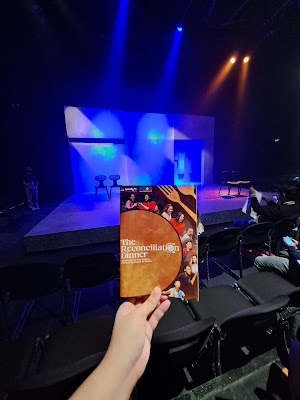 When We Cease to Understand the World by Benjamín Labatut
When We Cease to Understand the World by Benjamín LabatutMy rating: 4 of 5 stars
“We have reached the highest point of civilization. All that is left for us is to decay and fall.”
Karl Schwarzschild said this before he died in 1916, at only forty-two years of age, and yet he had already proven Einstein's theory of relativity, and is credited for the discovery of black holes.
It is the week before graduation, and this joyful time is always mixed with a teacher's worry: have we prepared our students enough? In 2023, even third graders already know what black holes are. First graders already have Tiktok accounts set up (sometimes by well-meaning parents). Senior high school students give off worldly vibes, having had a wealth of life experience made possible by more free time, an indirect result of online learning during the pandemic.
We have so much access to knowledge, that we have lost our sense of wonder, and its counterpart, horror. We no longer know when to feel this appropriate emotion.
Black holes are horrible. They are so strong, they are said to warp spacetime itself. Labatut writes that such a singularity "was a blind spot, fundamentally unknowable. Light could never escape from it, so our eyes were incapable of seeing it. Nor could our minds grasp it, because at the singularity the laws of general relativity simply broke down. Physics no longer had any meaning...The point of no return—the limit past which one fell prey to its unforgiving pull—had no sign or demarcation. Whoever crossed it was beyond hope."
At what point in man's quest for knowledge did we cross into this point of no return? Did we even pause to consider the dangers of A.I. made accessible to all? Did parents consider the safety implications of the lack of privacy that occurs when they post daily photo ops and videos of their growing babies?
This is what this incredible book is about. It tells of how giants like Heisenberg and Bohr and Grothendieck and Schrödinger wrestled with questions of physics, mathematics, and morality all their lives, none escaping unscathed. One-sentence textbook explanations are revealed to hide lifetimes of hard work, and utter despair. These are men wrestling with human weakness, warring nations, and sought to explain the workings of the universe regardless.
The key word here is "wrestle." And this is, I think, the "heart of the heart" of a teacher's job today: to teach the value and integrity of wrestling with moral questions, and solving long problems instead of using ChatGPT for every assignment.
For knowledge gained without pain becomes worthless and unvalued, and my fear is that we are raising a generation of children who crumble at the slightest pressure, so used to ease and comfort and having mountains and hills of Life made low by parents who think this is what constitutes good parenting.
“The atoms that tore Hiroshima and Nagasaki apart were split not by the greasy fingers of a general, but by a group of physicists armed with a fistful of equations,” warned Grothendieck. We have created weapons of mass destruction, and placed them at the mercy of fallible men, emotional and with frail egoes. And now there is a mad dash to teach children STEM, because everyone wants to be a doctor, or an accountant.
And this is all well and good. But perhaps we need to reflect on what all that knowledge is good for, if we no longer ask "Should we?" and blindly focus on "Can we?"
As we face graduation season, I'm glad I got the chance to read this singular literary achievement. Highly recommended for parents and educators, especially for Science teachers! Talk about adding Drama to Science.
View all my reviews





